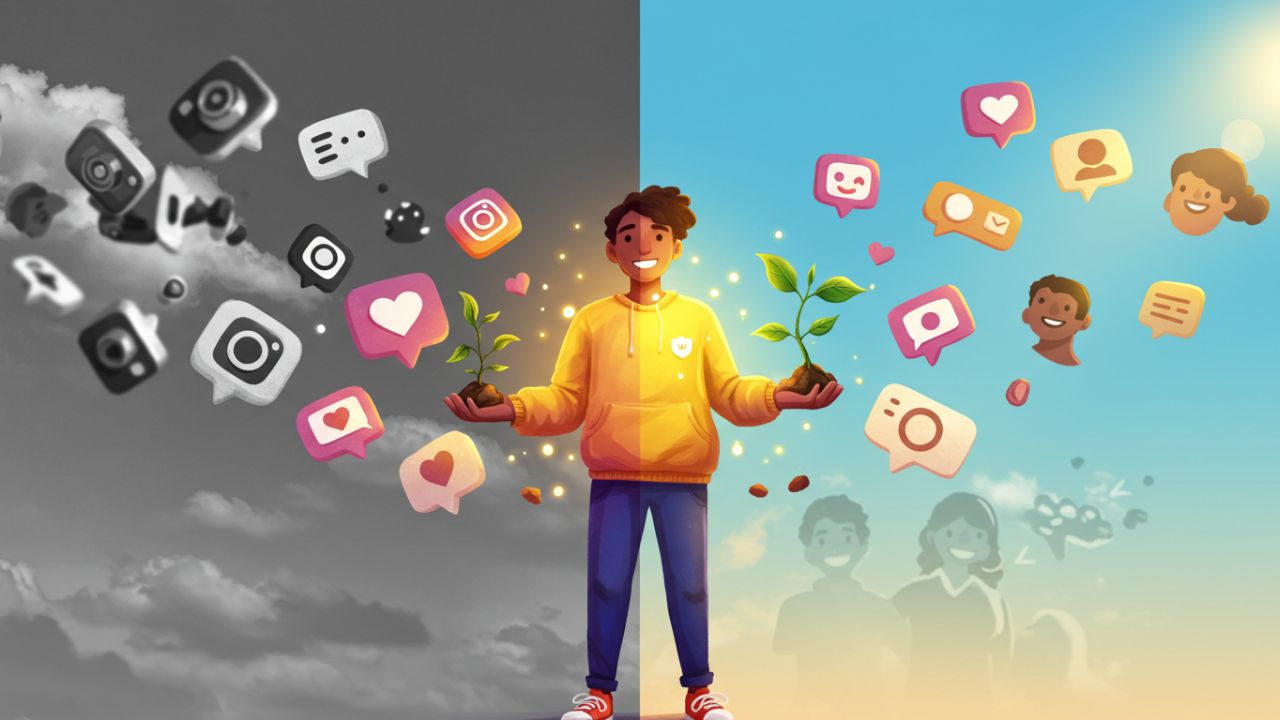In an era where Instagram profiles double as highlight reels, comparison anxiety has become a silent epidemic. The platform’s curated perfection—sunset selfies, envy-inducing vacations, and flawlessly filtered lifestyles—fuels a toxic cycle of “not enough” thinking. This article delves into the psychology of social comparison, why Instagram amplifies it, and actionable strategies to reclaim your mental peace.
1. Understanding Comparison Anxiety
- Definition & Psychology : Explore Festinger’s Social Comparison Theory (1954), which posits that humans evaluate themselves against others, especially in the absence of objective standards.
- The Instagram Paradox : Unlike real-life comparisons, Instagram offers endless opportunities to measure yourself against idealized versions of others. Studies show 60% of users feel inadequate after scrolling (Source: Journal of Social & Clinical Psychology ).
- The Dopamine Dilemma : Likes and comments trigger dopamine hits, creating a addictive feedback loop that prioritizes validation over authenticity.
2. Why Instagram Breeds Comparison
- Algorithmic Amplification : The platform’s algorithm prioritizes engaging content, often surfacing posts that evoke envy or aspiration.
- Highlight Reels vs. Reality : Users share 10% of their lives, skewing perceptions of success, beauty, and happiness.
- Quantified Self-Worth : Followers, likes, and engagement metrics reduce self-esteem to numbers.
3. The Toll on Mental Health
- Anxiety & Depression : Chronic comparison correlates with increased symptoms of depression (Krasnova et al., 2013).
- Imposter Syndrome : Constant exposure to others’ achievements can erode self-confidence.
- Body Image Issues : Filters and editing tools distort beauty standards, leading to body dysmorphia.
4. Strategies to Combat Comparison Anxiety
A. Reframe Your Relationship with Instagram
- Mindful Scrolling : Set intentions before opening the app (e.g., “I’m here to connect, not compare”).
- The 5-Minute Rule : Limit sessions to short, purposeful intervals.
B. Curate Your Feed Intentionally
- Unfollow/ Mute : Remove accounts that trigger jealousy.
- Follow “Realness” Advocates : Seek creators who share unfiltered, vulnerable content (e.g., @i_weigh, @mytherapistsays).
C. Practice Cognitive Restructuring
- Challenge Assumptions : Ask, “Is this post an accurate representation of their life?”
- Gratitude Journaling : Shift focus from lack to abundance by documenting daily wins.
D. Embrace Analog Alternatives
- Digital Detoxes : Schedule screen-free weekends or replace Instagram with hobbies like reading or hiking.
- Real-Life Connections : Prioritize face-to-face interactions to rebuild self-worth offline.
E. Leverage Instagram’s Tools
- Usage Insights : Audit screen time via the app’s “Your Activity” dashboard.
- Restrict Notifications : Disable non-essential alerts to reduce compulsive checking.
5. Case Studies & Expert Insights
- Interview with Dr. Sarah Thompson , a clinical psychologist specializing in social media’s impact: “Comparison is natural, but Instagram’s design pathologizes it. The key is to disrupt the cycle with self-compassion.”
- Success Story : Meet Maya, a 28-year-old who overcame Instagram-induced burnout by shifting her feed to artists and activists, not influencers.
Conclusion
Instagram doesn’t have to be a battleground for self-esteem. By understanding its traps and rewiring your habits, you can transform it from a source of anxiety into a tool for inspiration. Remember: Your worth is not a metric.

Leave a Reply